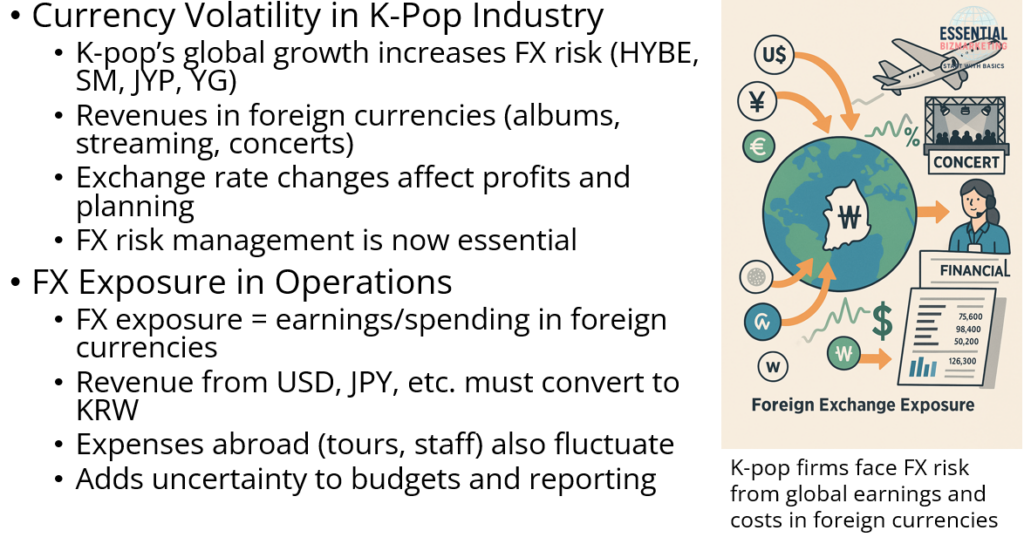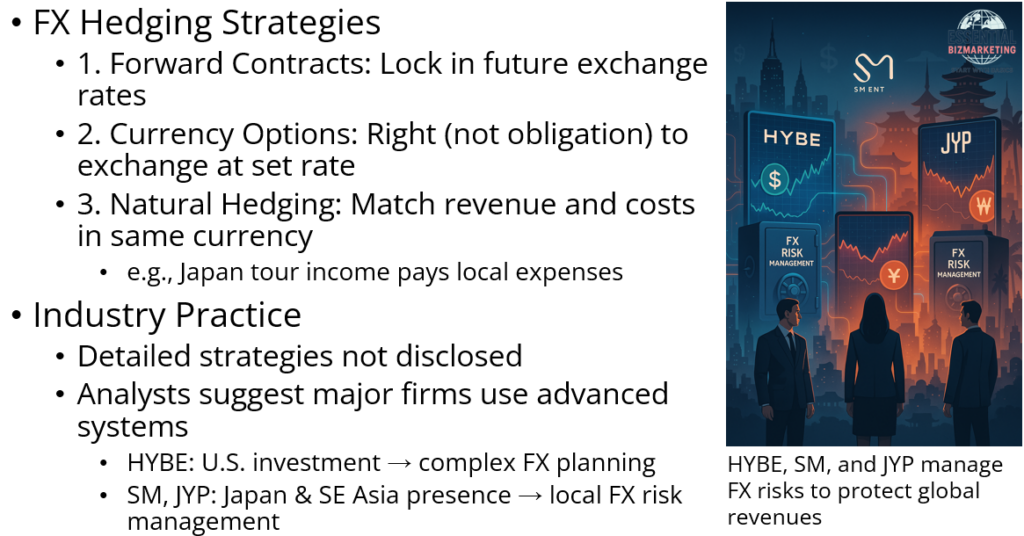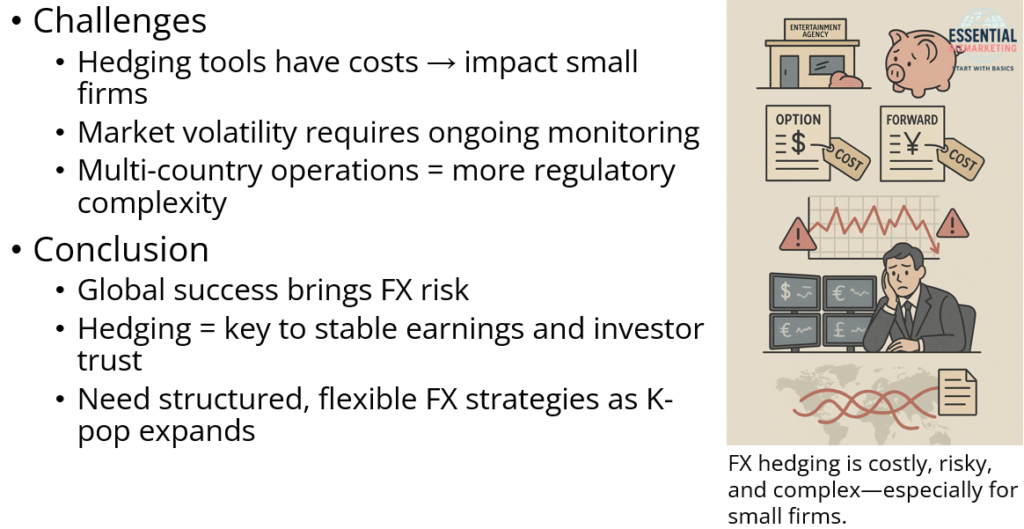Introduction: Currency Volatility in a Global K-Pop Industry

As K-pop continues to expand its global footprint, South Korean entertainment companies such as HYBE, SM, JYP, and YG face increasing exposure to foreign exchange (FX) risk. These firms generate significant revenue from global markets, including income from album sales, online streaming, concerts, and brand collaborations. However, fluctuations in exchange rates can erode profitability and destabilize financial planning. Consequently, FX risk management has become an essential component of strategic financial operations in the K-pop sector.
Understanding FX Exposure in K-Pop Business Operations
Foreign exchange exposure arises when a company earns or spends money in currencies different from its home currency. In the case of K-pop firms, revenue generated in U.S. dollars, Japanese yen, or other local currencies through international streaming services and concerts must often be converted into Korean won, creating the potential for gains or losses depending on market exchange rates. Similarly, operational expenses for international tours, local promotions, and staffing abroad are subject to fluctuations in local currencies, increasing the complexity of budget forecasting and financial reporting.
Approaches to Hedging Currency Risk

To mitigate the uncertainties caused by exchange rate movements, K-pop entertainment firms adopt a variety of hedging strategies. One of the most common methods is the use of forward contracts, which enable a company to lock in a fixed exchange rate for a future transaction. This approach allows them to plan future cash flows without the uncertainty of rate volatility. Another strategy involves currency options, which offer the right, but not the obligation, to exchange currency at a predetermined rate by a certain date, offering flexibility and protection at the same time. In addition to these financial tools, many firms also practice what is known as natural hedging, where revenues and expenses are aligned in the same currency. For example, money earned from a Japanese tour may be used to pay for local staff and logistics in Japan, thereby reducing the need to convert currencies and minimizing exposure.
Industry Implementation and Examples
Although detailed FX strategies of individual entertainment companies are rarely disclosed publicly, financial analysts suggest that major players such as HYBE and SM Entertainment, with substantial global operations, likely employ sophisticated FX risk management systems. HYBE’s investment in the U.S. market through its acquisition of Ithaca Holdings, for instance, not only diversified revenue streams but also necessitated careful currency planning. SM and JYP’s long-standing presence in Japan and Southeast Asia further emphasizes the need to manage local currency risks while securing returns in the Korean won.
Challenges and Strategic Considerations

Implementing an effective FX hedging strategy is not without obstacles. Financial instruments such as options and forward contracts involve costs, which may impact operating margins, especially for smaller agencies with limited financial buffers. Additionally, exchange markets are inherently volatile and require continuous monitoring to avoid over-hedging or under-hedging. Moreover, entertainment firms operating across multiple jurisdictions must comply with a range of international financial regulations, adding another layer of complexity to their hedging activities.
Conclusion: Sustaining Growth in a Global Market
In an industry where global engagement is both an opportunity and a financial risk, K-pop entertainment companies must incorporate FX hedging as a core part of their financial strategy. From financial derivatives to operational realignment, managing currency risk ensures not only stable earnings but also investor confidence in an increasingly unpredictable market. As K-pop’s global influence continues to rise, so too will the need for structured and adaptive currency risk management
📚 References
GPSFX. (n.d.). Natural hedging vs. financial hedging: Navigating currency volatility. Retrieved March 27, 2025, from https://www.gpsfx.com/natural-hedging-vs-financial-hedging-navigating-currency-volatility/
RBC Global Asset Management. (n.d.). What is currency hedging?. Retrieved March 27, 2025, from https://www.rbcgam.com/en/ca/learn-plan/investment-strategies/what-is-currency-hedging/detail
Risk.net. (n.d.). Natural hedge definition. Retrieved March 27, 2025, from https://www.risk.net/definition/natural-hedge
Wikipedia contributors. (n.d.). Foreign exchange hedge. Retrieved March 27, 2025, from https://en.wikipedia.org/wiki/Foreign_exchange_hedge
📁 Start exploring the Blog
📘 Or learn more About this site
🧵 Or follow along on X (Twitter)
🔎 Looking for sharp perspectives on global trade and markets?
I recommend @GONOGO_Korea as a resource I trust and regularly learn from.
